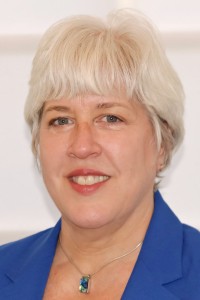By Alanna Klapp
The University of Southern California School of Social Work is offering master’s degree candidates a new area of concentration—Social Work and Business in a Global Society. Coursework can be completed online from anywhere in the country through the MSW@USC program, or in person if students reside in the Los Angeles area. USC is able to offer high-quality online courses through its partnership with 2U, Inc., an online higher education company that provides technology, infrastructural support, and capital needed to turn on-campus classes into state-of-the-art online programs.
The Social Work and Business in a Global Society concentration prepares students to be social workers in corporate environments. Corporate social workers target areas such as cultural diversity and inclusion, corporate social responsibility, and work-life balance. Students who concentrate in this area are taught to think systemically, analyze issues on a global scale, and focus on how businesses impact employees, their families, and their communities.
Impact on corporate diversity and inclusion
“Social workers practicing at the intersection of individuals, families, and work environments has been around a long time,” says USC Social Work Clinical Associate Professor Beverly Younger. Early social workers dealt with cultural diversity, because much of the workforce was made up of immigrants struggling to adapt to a new environment and being mistreated because they were seen as different by the mainstream population. The Civil Rights Acts of 1964 and 1991 forced employers to look at issues of inequity in the workplace, which over time resulted in a multitude of initiatives to help bring about diversity and inclusion.
“We have students who are highly interested in becoming cultural diversity and inclusion experts,” Younger says. The goal of the concentration as a whole is to prepare students to serve as agents of change with regard to organizations and individuals. Innovative, interactive assignments include designing social work interventions to be applied at the group level, and the curriculum includes several relevant electives, such as Managing Diversity in a Global Society, taught by Professor Michalle Mor Barak, a thought leader in the field and the author of several highly respected books, including Social Services in the Workplace.
Whatever focus students choose, their coursework deals with diversity and cultural competence. “They learn to design multilevel solutions for the workplace and address cultural needs, cultural diversity, cultural competence, and ethical concerns,” Younger says. “These considerations are tightly woven into the concentration.”
Supporting organizational change
Students selecting the Social Work and Business in a Global Society concentration receive training in several key areas, including these:
- Knowledge of human behavior and social identity formation at organizational and group levels
- Resolving conflicts and bullying in work groups
- National policies such as the Americans with Disabilities Act, Family and Medical Leave Act, and the Affordable Care Act
- International labor policies
The New Concentration
The Social Work and Business in a Global Society concentration provides a focus on diversity and cultural competencies that can lead to a variety of roles, including the following:
- Global Diversity and Inclusion Manager
- Assistant Director for Diversity and Multicultural Affairs
- International Diversity and Cross-Cultural Resource Manager
- Corporate Social Responsibility Manager
- Employee Assistance Program (EAP) Clinician
- Behavioral Health Care Manager
- Organizational Change Management Consultant
- Employee Wellness Specialist
- Director of Sustainability
Students are given the tools they need to become skilled in organizational assessment and program development. They work in teams to develop design, implementation, and budgets for initiatives. They also learn to evaluate and demonstrate results, which could include a return-on-investment figure. “They have to make a business case for creating these types of programs,” Younger says.
Eager to encourage students interested in becoming diversity managers to gain specific expertise in a single aspect of cultural diversity, such as gender issues in the workplace, Younger is currently working on a project with some of her students and a consulting firm in Bangalore, India, to evaluate qualitative data of women’s career support services in Indian corporations. “Someone with a special understanding of the issues facing women in the workplace in India will be highly valuable,” Younger says.
In addition to encouraging students to acquire niche knowledge, Younger advises them to go global. She says that although it’s not an easy process, it’s important for students to understand the global realities that businesses face today. “Most of the businesses our students would be interested in joining are transnational in scope,” Younger says. Gaining a good grasp of the global dimensions of doing business can send the graduates of the USC program straight to the top of job candidate lists, because they will be viewed as more valuable to corporations.
Younger and her colleagues want to see the concentration expand in the School of Social Work. The goal is to make social workers more visible within corporations. “When someone hears the term ‘corporate social worker’ or ‘organizational social worker,’ it will be a brand people recognize,” Younger says. She and her colleagues envision graduates of the program bringing human values and behavioral expertise into corporations, and helping create and sustain diverse workplace that includes and engages all of its employees. The faculty seeks to mold change agents who can play a key role in creating and supporting well-being in the workplace, which, in turn, will have a positive impact on profits, employees, their families, and communities.
Click here to learn more about the program.







